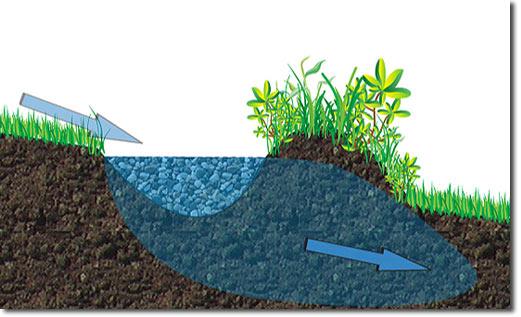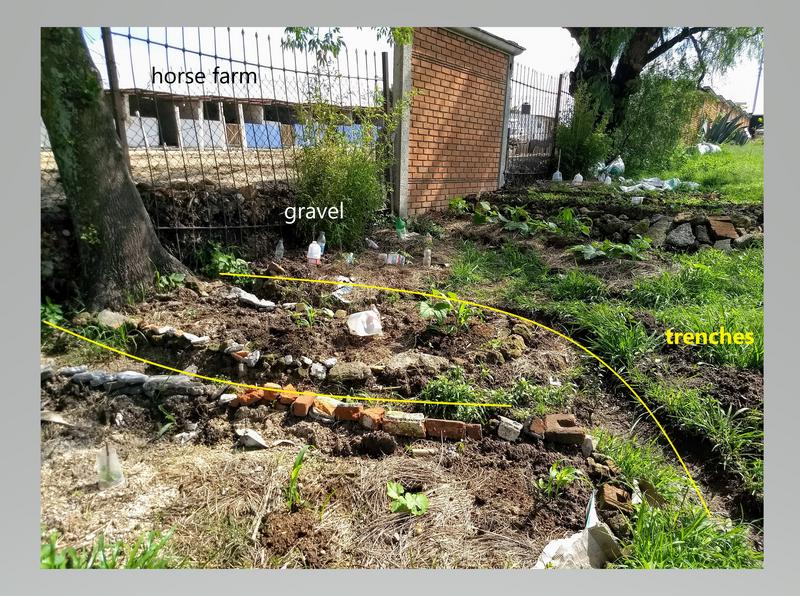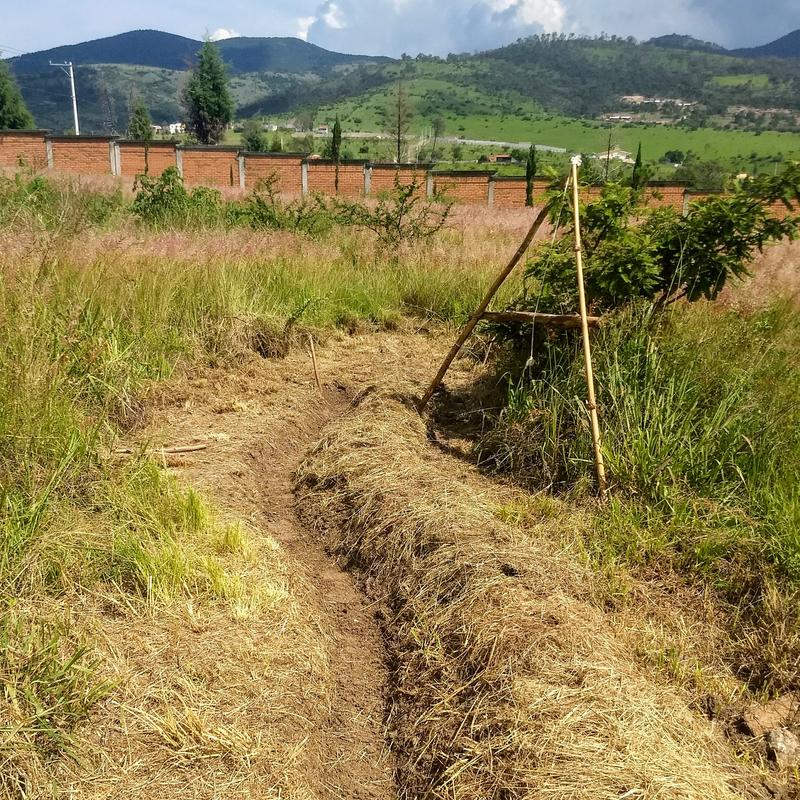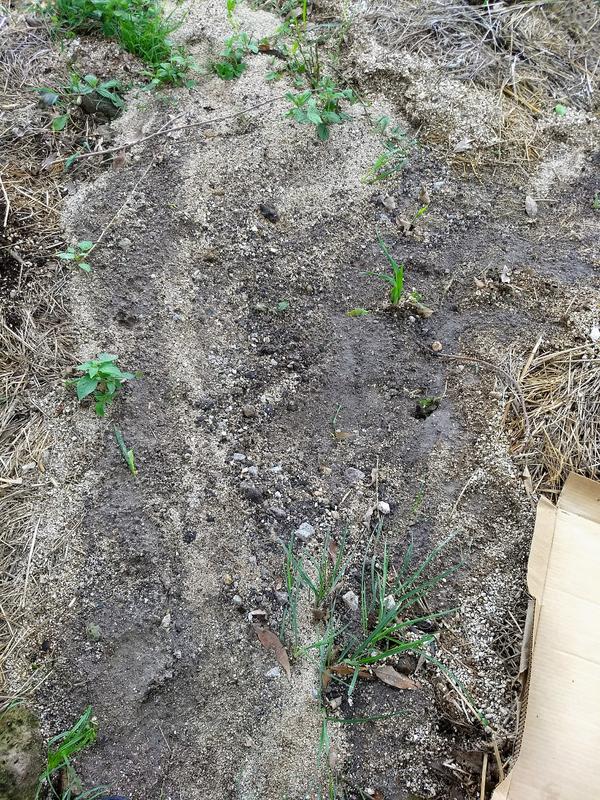
Level ground
We live on a hillside so we’re digging swales. You might want to do similar landshaping to use water efficiently where you live.
But don’t just dig a trench. A swale isn’t a channel to move water; it’s on contour to slow and sink water. First you have to find level ground.
Here’s how Phillip tried, failed, tried and succeeded:
In Iowa a swale might be a straight line, but here it curves. If I walk across El Terreno (perpendicular to the slope) I would think i was walking on level ground. But see how the swale arcs and dips to find level ground?
How’s that swale doing in the rainy season?
We’re doing mini-landshaping around some plants and trees—a small C-shaped berm on the downhill side of trees and plants to slow and sink water. That would be an easy Sunday afternoon project in your yard or garden.
Final example: when some of my garden beds were smothered in gravel I knew I needed to act.
Our neighbors (the horse farm) live on the same hillside we do, but they leveled their plot with gravel. I started garden beds along our shared wall because it’s a beautiful spot with the only two “old” trees on the land (over 20 years). The first big rain after I’d planted showed me the error of my ways - gravel washed from their artificially higher ground through the chain link fence onto the garden beds. With Phillip’s advice I dug some trenches, and the beds have been gravel-free since.

It did mess with the aesthetics of my arcs and curves celebrating the trees, bamboo, and how human bodies move when weeding, but the gravel’s in a better place now.

